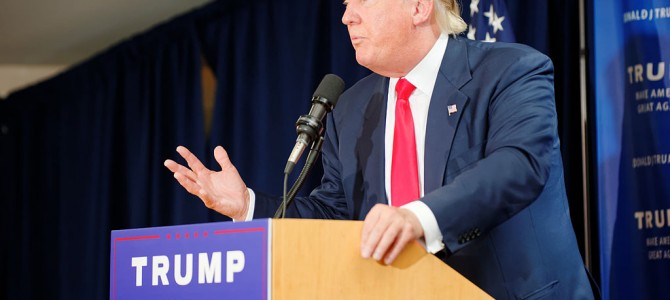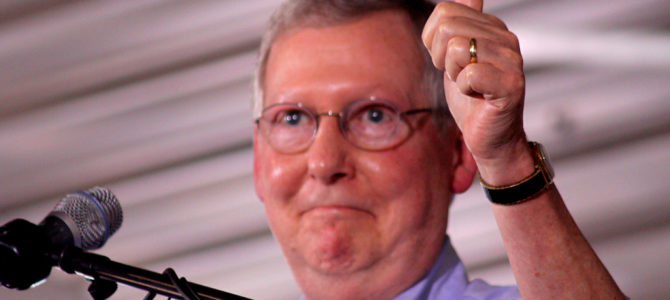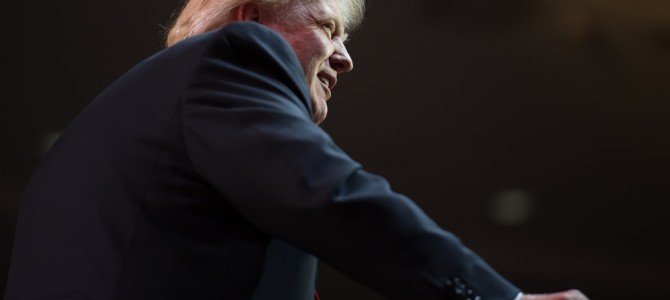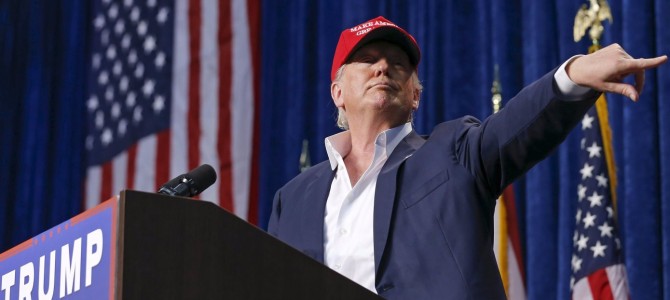
Who can explain the rise of the golden haired sun eater? Who are the people who wanted a president with the agenda of a billionaire Kenny Powers? From whence does this populist rage emerge? And why is it that Donald Trump gets to ride around Lake Franzibald after he says something obnoxious instead of debasing himself as our media demands?
We are surrounded by thinkpieces conveying various answers to these questions. We’ve published several good ones here. Yesterday Tom Nichols offered his explanation – a combination of celebrity culture, distrust of elites, and the political illiteracy of the American people. Today D.C. McAllister argues the Tea Party case – that conservatives disgusted with their party have elevated Donald Trump as a proxy for their frustration. But is Donald Trump’s base just the Tea Party reborn? Not exactly – it’s actually more Northeasterners, more moderates, and more apolitical types, not just Tea Party radicals or ultraconservatives. So what’s really going on here?
Walter Russell Mead offers his explanation here, and it is probably the best one I have read:
“For voters who’ve come to believe that both parties are owned and operated by the kind of people who pay Hillary Clinton hundreds of thousands of dollars to make platitudinous speeches, who believe that the system is rigged and will never be reformed, that the candidates offering “real solutions to real problems” are fooling either themselves or, more probably, you, Trump at least offers the satisfaction of making the other rat bastards and pompous PC elites squirm. He laughs at them and makes them look small; he defies their hatred and revels in their pursed-lip disapproval. By incurring the hatred of the chattering classes, he seems to some voters to be signaling both that he hates the empty showmanship of the capital as much as they do and that, by making himself the enemy of the self-determined arbiters of the rules of the political game, he is throwing himself on the support of the American people.”
As American equivalents of Silvio Berlusconi go, Trump is performing excellently – owning the portion of the electorate whose ideological view amounts to “Go America”. This brings me to Noah Rothman’s piece on the topic in Commentary, which is worth reading. Rothman is a very smart writer and observer of American politics, but I do think here I would dispute his depiction of Trump’s cause and effect as being reversed. In democratic societies, when leadership ignores the priorities of the people, they react by supporting people who represent those priorities OR speak to their inchoate rage AND have the potential to rise above a system they believe is corrupt. This is the sort of approach to politics that leads you into asking for Caesar to dissolve the Senate, and is not healthy when it comes to self-governance – but it is also not new, and it is understandable.
Rothman’s overall argument is that Trump is hindering a conservative agenda. I have a tough time seeing how this is the case. First, Republicans are united in opposition to the Iran deal, which is now all about what Democrats – Chuck Schumer and other Israel-friendly elected officials – say about the matter. Republican leadership will have no impact on the outcome of that debate. Second, Rothman writes: “conservatives and pro-life activists might be sacrificing the best opportunity in a generation to withhold taxpayer funds from the nation’s leading abortion provider.” This confuses me, given that it is Republican leadership – not conservatives and pro-life activists – who have already said there is zero chance that they will force the president to defend Planned Parenthood by risking a shutdown. Republican leaders have already decided – over the objections of as unlikely a team as Rand Paul and John McCain – that there is no chance of defunding Planned Parenthood. I don’t think Donald Trump has any bearing on that question.
Part of the problem with this angle of analysis is that for Trump to be hindering a conservative agenda, such an agenda must actually exist. It does not, and the reason it does not is in accordance with the considered choices of Republican leaders to prioritize policies they did not run on in 2014.
Trump fills the vacuum left by a political faction that has for years promised its voters it would do things it had no intention of doing – most recently, things like stopping Obamacare and blocking the president’s immigration amnesty – and have governed for seven months on all sorts of other things. As such, his support is best understood as the embodiment of this John Goodman rant from The Gambler (language warning).
Privately, these Republican leaders may say: “Look, Obama is still here so conservatives just need to wait. We can’t do any of the things they want, and trying and failing would be worse than not trying… So we’re not going to try.” Publicly, they say: “Look at this awesome conservative agenda we’ve passed! We’ve got appropriations bills, NCLB reauthorization, Trade Promotion Authority – The Senate is open for business!”
The Republican Party in Washington won’t cooperate with its base, won’t level with them about why, continues to view them as ignorant or ungrateful or easily led by external groups, and spends much of its time complaining when this same base resorts to bullying and resentment in response.
Trump rises in a reality in which the Jacksonian American spirit – fed up with being told what they can and can’t say and do, with what is reasonable or practical to expect given the circumstances, with leadership they feel no longer serves their priorities – decides to just throw their hands in the air and express their rage the only way they can – “sure, whatever, Trump.” It is an asymmetric backlash based not on some logical political thread but on the frustrations and dissatisfactions of people who sense their nation has crumbled, their leaders have lied to them, that we are ruled by a government of cowards and thieves, and that they have nothing to lose by supporting a man who will stand up and say so in the face of elite objection.
Of course Donald Trump is an unserious candidate. But that’s not the question that matters. The real question here is: Do Trump’s supporters have something important to be upset about, or not? If your answer is “no”, I wonder if you’ve been paying attention.









